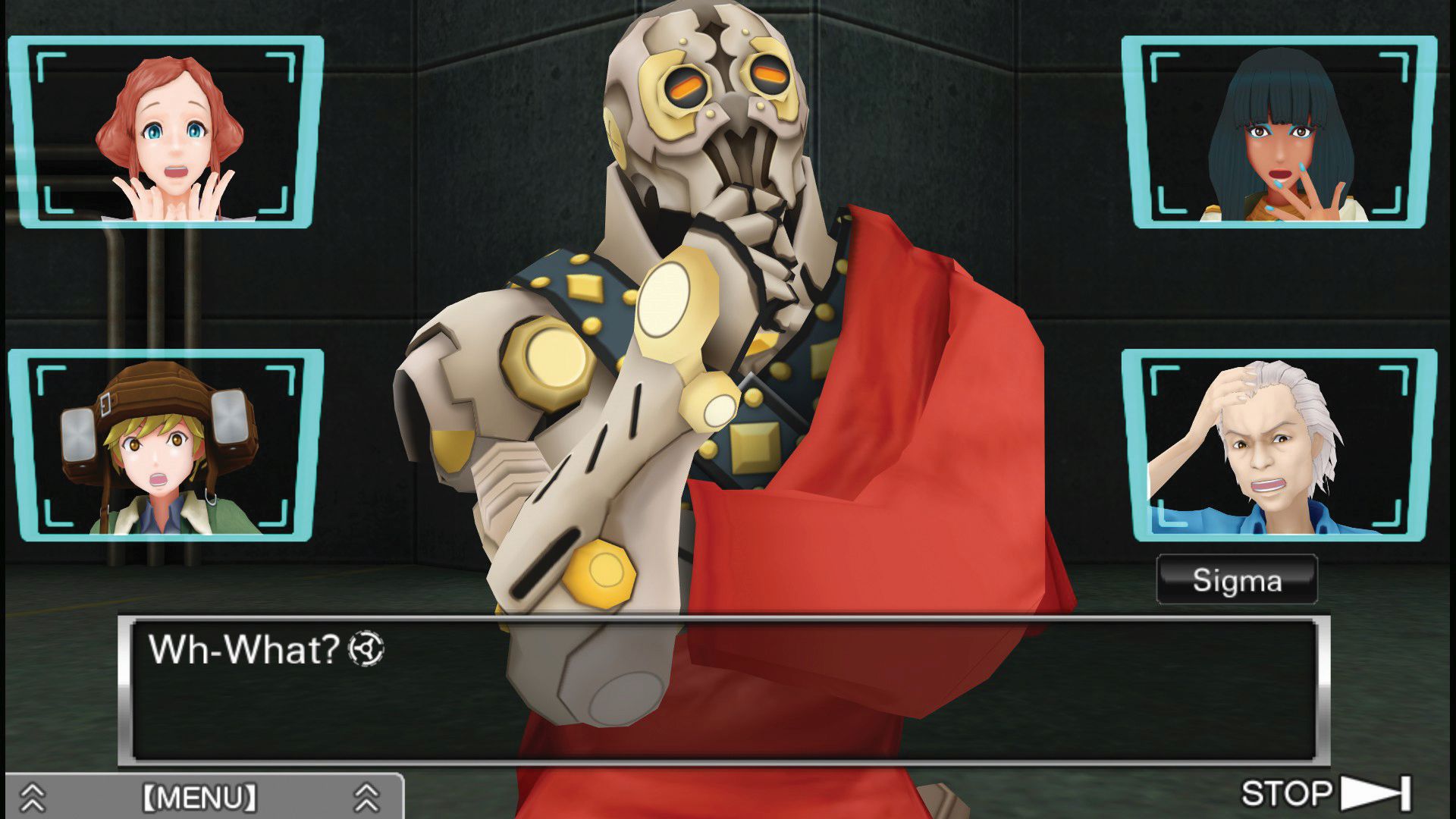Our Verdict
Smart without being overbearing, Zero Escape: The Nonary Games continues to set the bar for its genre.
PC Gamer's got your back
What is it? The first two games in the Zero Escape visual novel thriller series.
Expect to pay £30 / $45
Developer Spike Chunsoft
Publisher In-house
Reviewed on Intel i7-4500U, 8GB RAM, Intel Graphics 4400
Multiplayer None
Link Official site
The Zero Escape series of visual novels is built on the game mechanic of revisiting past events and using your knowledge from the future to divert a dire fate. It’s not unlike when you used to slide a cheeky thumb into the pages of Choose Your Own Adventure books as a safeguard against a sticky end. The first to hit the platform was part three, Zero Time Dilemma: perfectly playable on its own, but it needs this double bill to set events in motion.
The series begins with 999: Nine Hours, Nine Persons, Nine Doors. Nine contestants have nine hours to solve the puzzles behind nine individual doors if they’re to escape the deadly Nonary Game with their lives intact. The same goes for Virtue’s Last Reward, only with more rooms and a ruleset that would take several issues of PCG to explain. The only thing you need to know is, like any great thriller, both games play their cards close to their chest, gradually revealing information without blowing any of the big surprises before the very end.
To reach that point, you’ll need to play each game multiple times and experience many horrible deaths. Thankfully, each branching point takes you down a vastly different path. These are broken up with self-contained point-and-click puzzle chambers, instantly familiar to anyone who has dabbled with room escape Flash games. It’s nice to have a visual novel that gives your brain as much of a workout as your text-scrolling clicker finger.

The puzzles are old-fashioned—the fixed camera angles and restricted navigation giving me flashbacks to Myst—but they focus investigations with clear areas to probe and prod for clues. Each room is themed, too, making for unique and pleasingly tactile puzzles that are never repeated. In one room you’re charting a ship’s course on a compass, in another you’re potting numbered billiard balls on a pool table. In lesser hands, these could have strayed into tedious minigame territory, but the emphasis on logic over timing and skill keeps them satisfying to solve throughout.
Still, the novel segments are taxing in their own way. The cast has the odd habit of crowbarring lectures on philosophy and psychology into everyday conversation. The sight of an Egyptian princess and an amnesiac robot pondering Schrödinger’s Cat is daft as hell, but the script does a neat job of explaining complicated ideas in simple, easily digestible chunks. Also, armed with such knowledge, you begin to see hints of it in everything around you, making the whole game feel rich with meaning and subtext. It’s like submerging your brain in a jacuzzi; you feel challenged and pampered at the same time.

It’s an effect heightened by playing the two games in the order intended. VLR is the more sophisticated, but Spike Chunsoft’s done a good job of modernising both. Bar a few pixelated notes and item textures, 999 now benefits from a full voice cast, higher resolution art and, more importantly, VLR’s flowchart feature, letting you jump around the timeline at will. There’s also a skip button for any dialogue you’ve heard before. The result is far more focused than its DS original, with little repetition. You have to replay some puzzle rooms to unlock specific endings, but it’s a minor inconvenience when you can immediately hop out once those criteria have been fulfilled.
VLR handles this much more elegantly, saving its critical decision moments for its novel sections. It’s also clearer in VLR where you’re meant to apply new pieces of information in previous events. This is something 999 never quite gets right. Ultimately, though, these are both great visual novels in their own right, and highly deserving of their combined 50-odd hour playtime. Their puzzles give them the mechanical hook often missing in visual novel games, while the plot avoids the teenage histrionics that plague much of the genre. If you’re looking for a meaty tale without the faintest whiff of RPG, The Nonary Games are an experience you won’t want to rewrite.
Smart without being overbearing, Zero Escape: The Nonary Games continues to set the bar for its genre.


